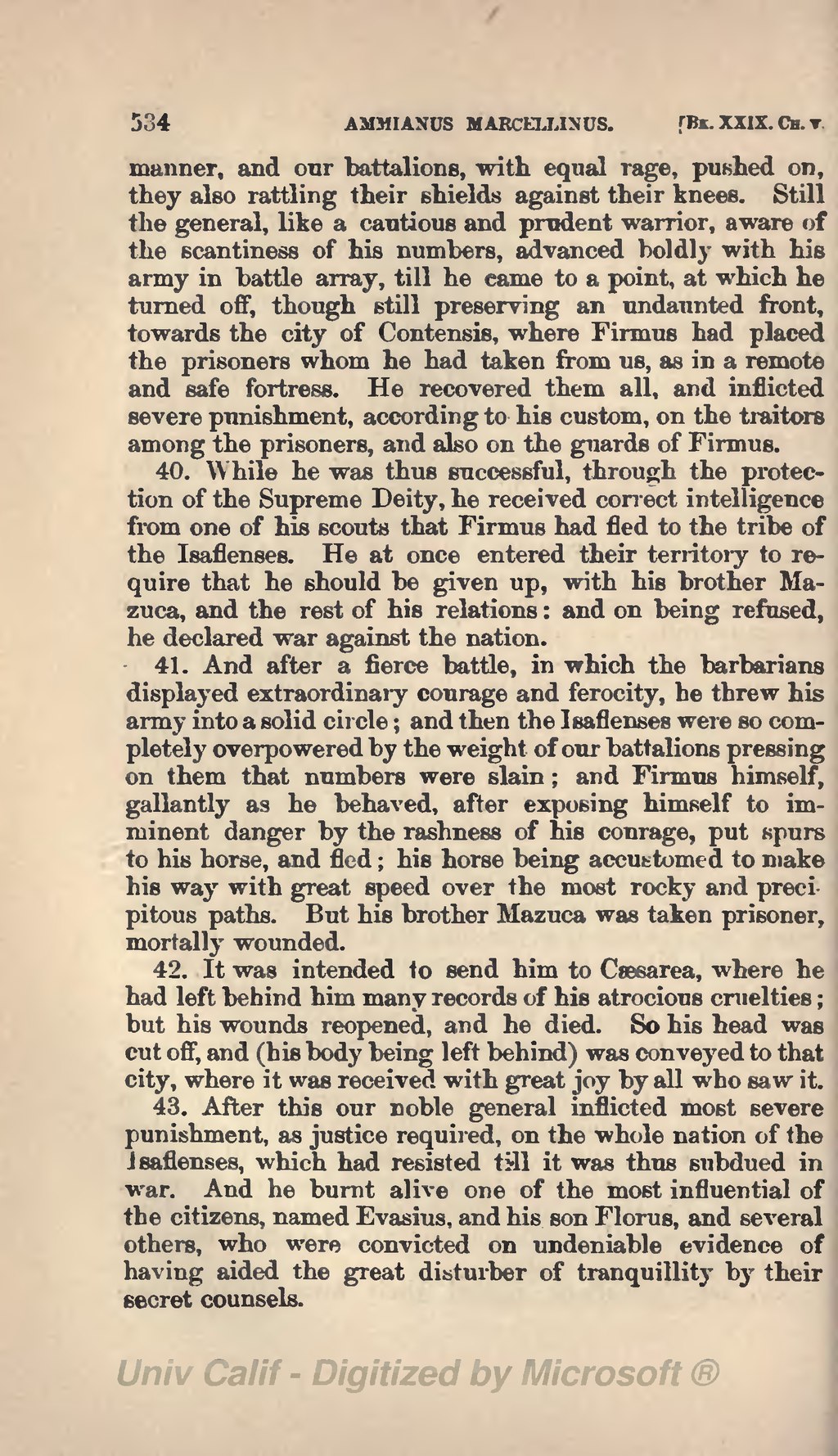and our battalions, with equal rage, pushed on. they also rattling their shields against their knees. Still the general, like a cautious and prudent warrior, aware of the scantiness of his numbers, advanced boldly with his army in battle array, till he came to a point, at which he turned off, though still preserving an undaunted front, towards the city of Contensis, where Firmus had placed the prisoners whom he had taken from us, as in a remote and safe fortress. He recovered them all, and inflicted severe punishment, according to his custom, on the traitors among the prisoners, and also on the guards of Firmus.
40. While he was thus successful, through the protection of the Supreme Deity, he received correct intelligence from one of his scouts that Firmus had fled to the tribe of the Isaflenses. He at once entered their territory to require that he should be given up, with his brother Mazuca, and the rest of his relations: and on being refused, he declared war against the nation.
41. And after a fierce battle, in which the barbarians displayed extraordinary courage and ferocity, he threw his army into a solid circle; and then the Isaflenses were so completely overpowered by the weight of our battalions pressing on them that numbers were slain; and Firmus himself, gallantly as he behaved, after exposing himself to imminent danger by the rashness of his coinage, put spurs to his horse, and fled; his horse being accustomed to make his way with great speed over the most rocky and precipitous paths. But his brother Mazuca was taken prisoner, mortally wounded.
42. It was intended to send him to Caesarea, where he had left behind him many records of his atrocious cruelties: but his wounds reopened, and he died. So his head was cut off, and (his body being left behind) was conveyed to that city, where it was received with great joy by all who saw it.
43. After this our noble general inflicted most severe punishment, as justice required, on the whole nation of the Isaflenses, which had resisted till it was thus subdued in war. And he burnt alive one of the must influential of the citizens, named Evasius, and his son Florus, and several others, who were convicted on undeniable evidence of having aided the great disturber of tranquillity by their secret counsels.
